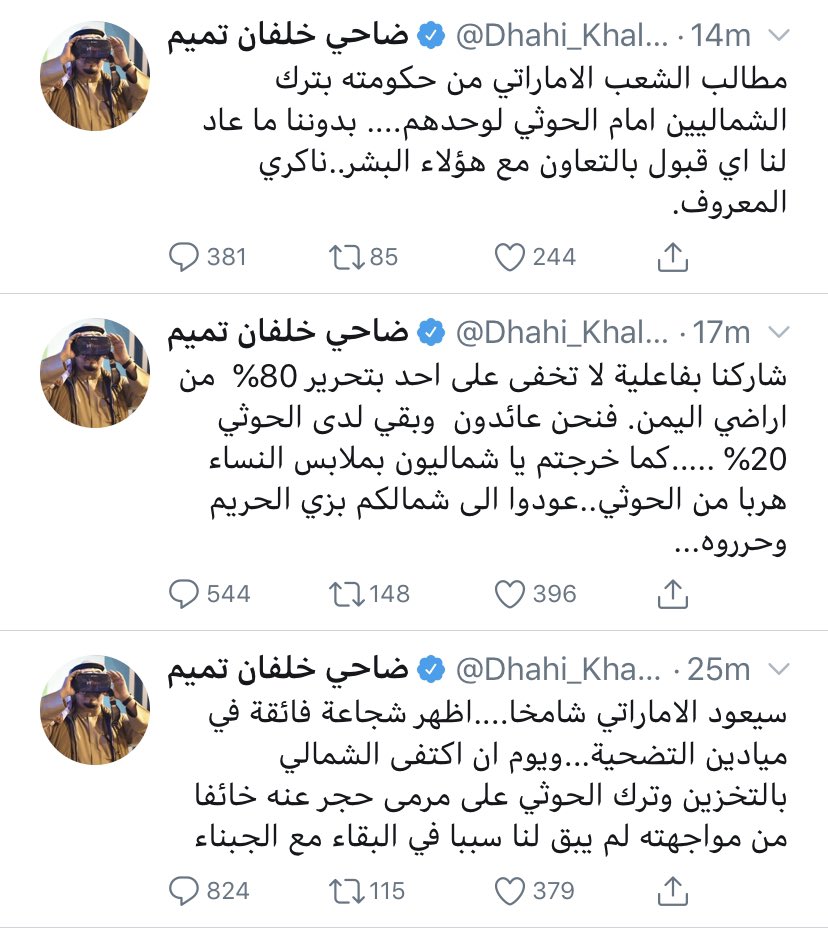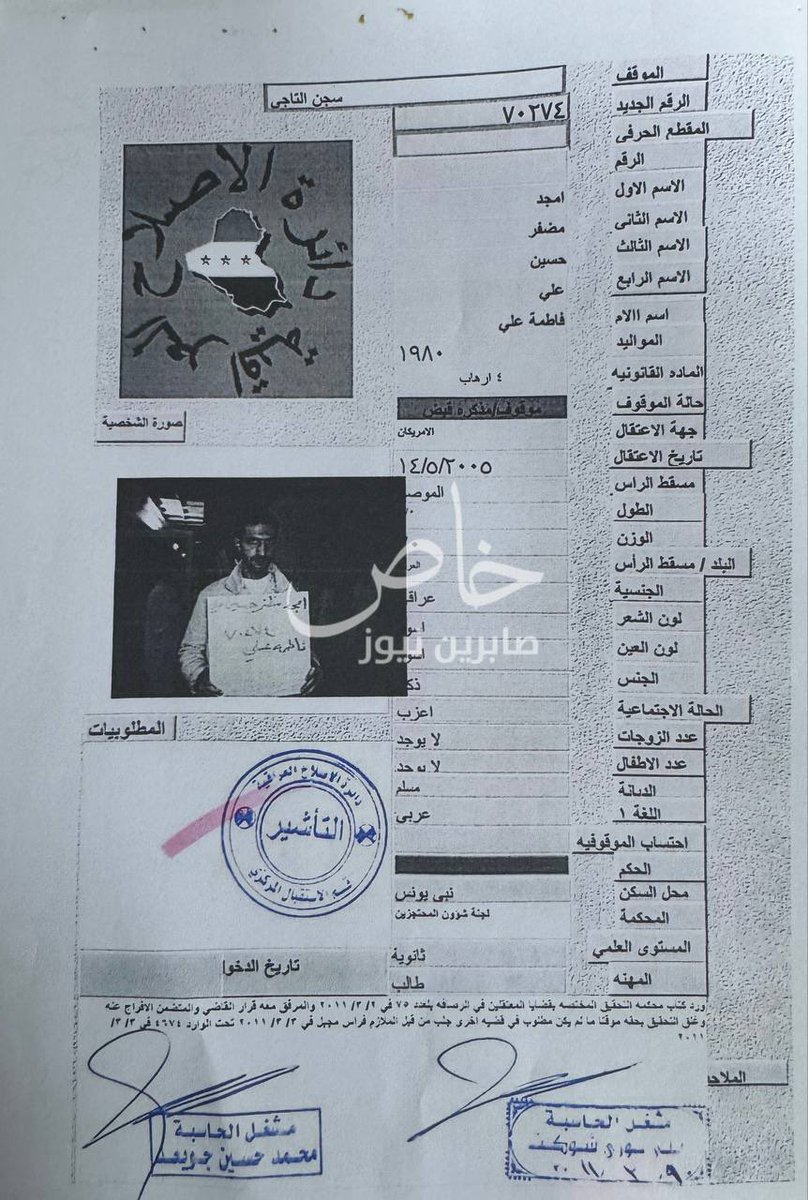Very interesting statement just issued by Saudi Arabia and the UAE -- an agreement to support the Yemeni government & what seems to be a reversal of the UAE "withdrawal."
Speaks of a troops REDEPLOYMENT (details in following tweets)
spa.gov.sa/1961766
Speaks of a troops REDEPLOYMENT (details in following tweets)
spa.gov.sa/1961766
Joint UAE-Saudi statement: the two countries expressed concern over events in Aden and then in Abyan and Shabwa & both "affirm the continuation of all political, military, relief & development by the countries of the coalition that came to the rescue of the Yemeni people."
1/
1/
Statement: the governments of the two countries reject & condemn accusations & smear campaigns targeting the UAE in the wake of these events & affirm commitment to preserve the Yemeni state & its unity under the legitimate president [Abdrabbuh Mansur Hadi]
Statement: both countries affirm the need to fully comply with the joint committee formed by the coalition's leadership and for "the redeployment of forces in the framework of the military effort by the Coalition."
END
END
(The joint statement comes a day after these interesting tweets by the UAE minister of state for foreign affairs, with different language affirming the UAE’s subordinate role in Yemen & that it would completely defer to Saudi Arabia for its role there.) 

In other words, new things:
• The UAE is recommitting to the war effort in Yemen & redeploying forces there
• The two countries reached an agreement to not split Yemen (some assumed the two were quietly on the same page)
• Both agree to continue the fight against the Houthis
• The UAE is recommitting to the war effort in Yemen & redeploying forces there
• The two countries reached an agreement to not split Yemen (some assumed the two were quietly on the same page)
• Both agree to continue the fight against the Houthis
(So much for “no friction between the two brothers”. There was/is, and it follows increasing challenges to the UAE allies in southern Yemen & anger in Riyadh. Reminds of Haftar’s failure to seize the Libyan capital despite unprecedented backing from his regional sponsors.)
Old statements like this were untrue:
“The United Arab Emirates had been planning its recent troop drawdown in Yemen for over a year and coordinated its move with key ally Saudi Arabia, a senior Emirati official said on Monday.”
reuters.com/article/us-yem…
“The United Arab Emirates had been planning its recent troop drawdown in Yemen for over a year and coordinated its move with key ally Saudi Arabia, a senior Emirati official said on Monday.”
reuters.com/article/us-yem…
“Dissent” view about the UAE’s recommitment to the war effort from Dubai police ex-chief & top advisor:
“No reason is left for us to stay with the cowards ... the Emirati people demand from their government to leave the Northerners [Hadi govt] fighting the Houthis on their own.”
“No reason is left for us to stay with the cowards ... the Emirati people demand from their government to leave the Northerners [Hadi govt] fighting the Houthis on their own.”

(Importantly, these views & others additionally indicate how the joint statement made yesterday has been understood locally... that it was a reversal of recent moves & a recommitment to the war effect against the Houthis.) 

• • •
Missing some Tweet in this thread? You can try to
force a refresh






















